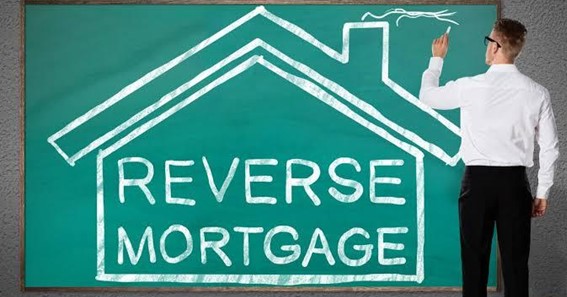Reverse Mortgages are becoming increasingly popular every day. They have been around for years. However, the last few years have seen an upswing in their popularity due to so many housing issues around the world today.
If you are 60 or older and have a steady income, it may make sense to take a reverse mortgage on your home. A weaker economy has made homeownership less affordable for many people in recent years and has meant that some homeowners simply can’t afford to buy another home at today’s prices. A reverse mortgage is exactly what it sounds like — it allows you to borrow against the equity in your house (or condo) instead of selling it outright.
As appealing as these loans are, it is important that you know how a reverse mortgage works before applying for one. There are certain factors that determine whether you can take up the loan. Also, you need to know the criteria you should fulfill before being granted this mortgage.
click here – TIPS TO MAKE YOUR BUSINESS MORE CREDITWORTHY
With this in mind, let’s discuss some factors that determine whether you should take the loan or not, some criteria that allow lenders to offer it to you, the types of reverse mortgage available, and some benefits of this loan.
Why You Might Want to Take a Reverse Mortgage
The following are some reasons why you might want to consider this loan:
Your Property Value is Increasing
If your home’s equity is increasing considerably, you might be qualified to take this housing credit and still have enough money left for your property.
You Can Cover Your Home’s Cost
To keep your reverse mortgage current, it is important to pay your insurance, property taxes, and maintenance fee on time. So if you can cover these costs, you can apply for this loan.
Criteria that Qualifies You to Take a Reverse Mortgage
As a borrower, you need to fulfill certain criteria before a lender can offer this loan to you. Here are some of them:
Paying Insurance and Taxes
It is important for you to clear off any debts that might affect your property’s value. Some of such expenses include:
- Property taxes
- Condo fees
- Insurance for your current mortgage
- Homeowner association payment
Failure to be current in paying these expenses will affect your reverse mortgage agreement.
Home Maintenance
You must also ensure that you carry out repairs and maintenance on your property before applying for the loan. This helps to protect your home’s equity and increase its value in the housing market. For other ways to increase your home’s value, you can read this article.
Occupancy Requirements
Another requirement that allows you to qualify for this mortgage is the number of years you’ve lived on the property. You must stay in the residence for about six months and above to qualify.
Types of Reverse Mortgages
The decision to go for this credit solely depends on you. So, if you decide to go for one, here are some types available for you to choose from:
Home Equity Conversion Mortgage (HECM)
This is the only type that is offered by the government. You can only apply for one through an approved Federal Housing Administration (FHA) lender. This type allows older ones to withdraw a specific amount of their property’s equity to supplement their income.
This specific amount that can be withdrawn depends on certain factors. These factors include:
- Age of the borrower
- The current rate of interest
- Limit of the HECM
HECM for Purchase
This type allows older citizens to get a new residence using the proceeds from the reverse mortgage. The HECM for purchase works like other types, but it doesn’t have a cash payout like them.
You will have to provide a down payment by using your savings or the sale of your former residence. The equity from this down payment will be added to your new residence value and will serve as the reverse mortgage amount.
Older ones who want a better home or a change of environment can go for this loan. If you want to know more about this mortgage, check here:
click here – What Are Security Tips For Company Servers
Single Purpose Loans
These are the least common types available today. They allow you to leverage your property’s equity to fund a single purpose approved by the lender. You cannot use the money gotten from these for anything, except for the purpose stated when applying for them.
The terms to receive these mortgages are less restrictive than the other types. The reason many choose them include carrying out maintenance on their property and paying taxes.
Benefits of a Reverse Mortgage
The following are some of the benefits of the loan:
It Helps to Secure Retirement
This loan is good for retirees who don’t have investments but have highly valuable property. With this loan, retirees can turn their illiquid assets into cash and have a secured retirement.
You Can Pay Off Your Existing Debt
You can use the proceeds of this credit to pay off an existing home debt. This leaves enough money for other expenses.
You Won’t Have a Tax Liability
The money you receive from this credit is tagged as loan proceeds and not an income. This means that the money is not taxed like other retirement incomes.
You Can Stay on Your Property
You can keep your home and get cash for it. You wouldn’t have to worry about selling your home for the loan, unlike other options.
Conclusion
The decision to take this mortgage is one you should consider carefully. You wouldn’t want to make a hasty decision without thinking of its financial implications. Ensure that you keep the above-mentioned pointers in mind as you make your decision.
